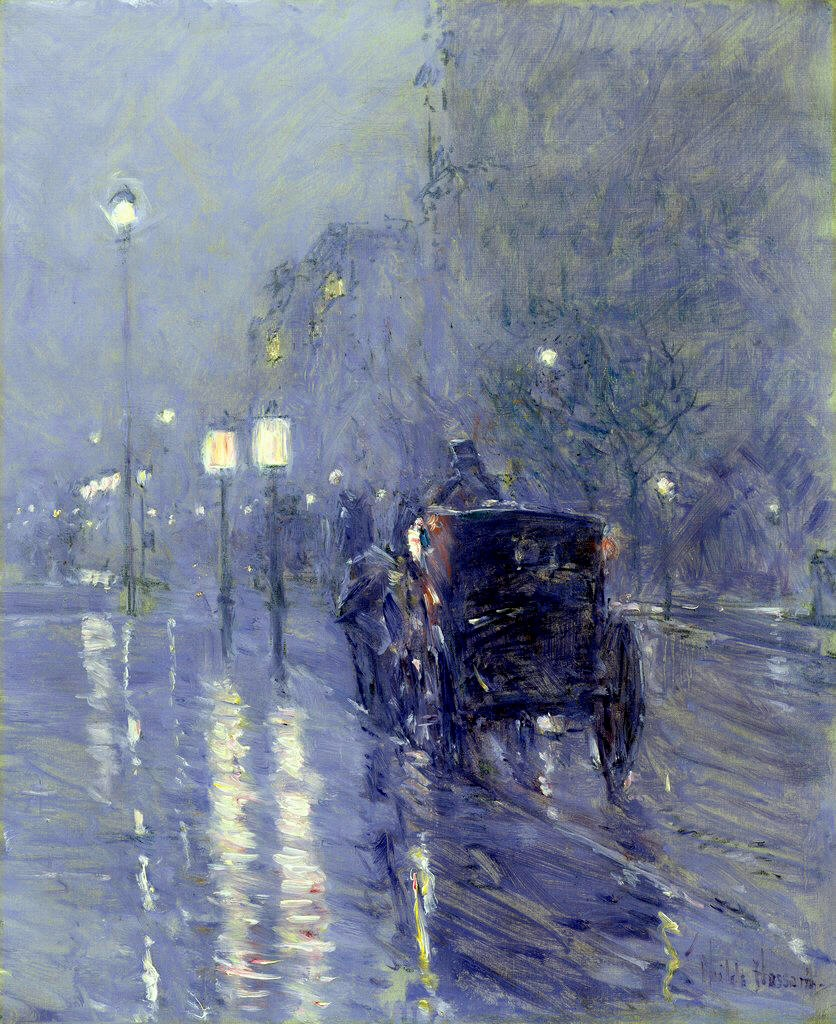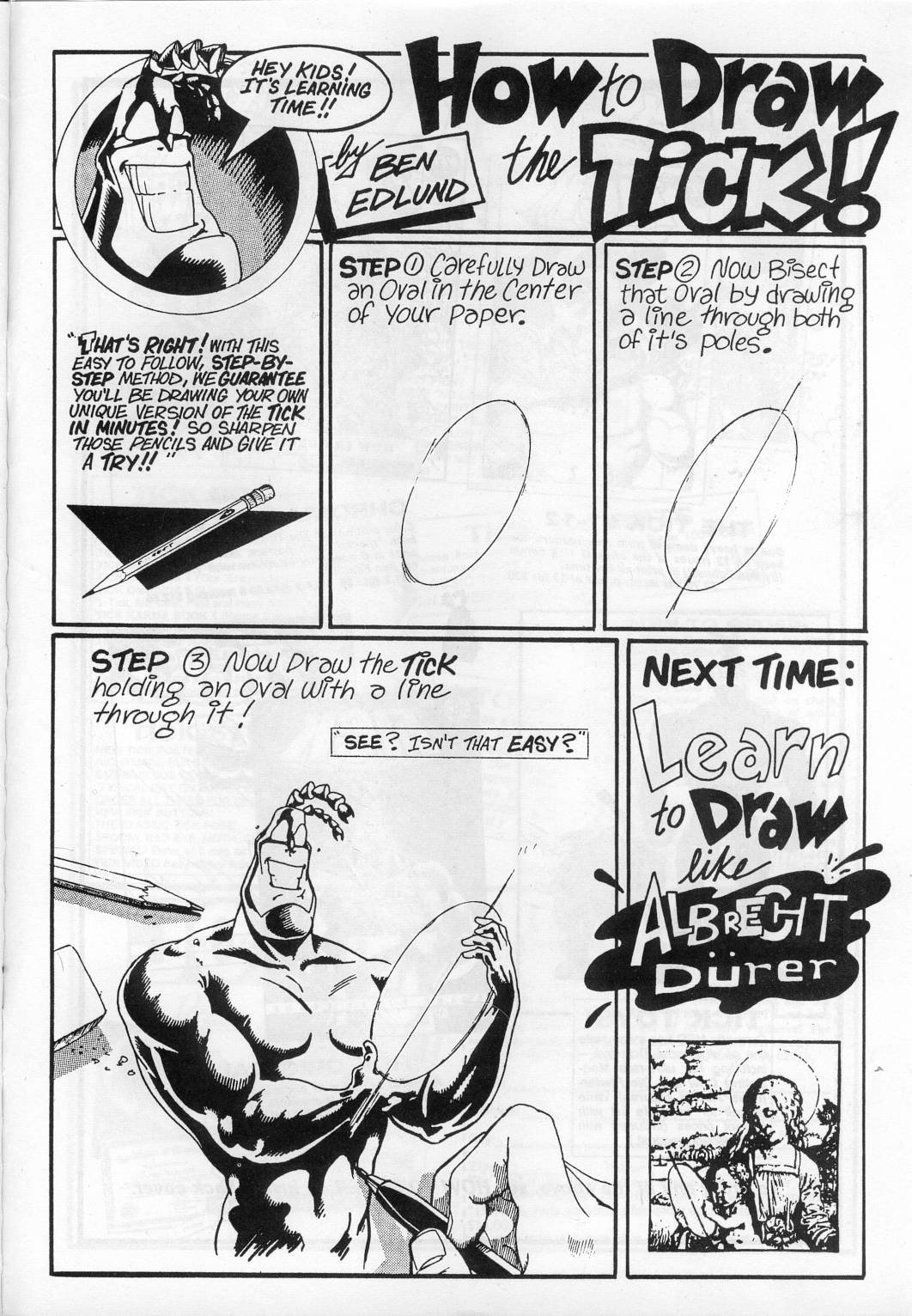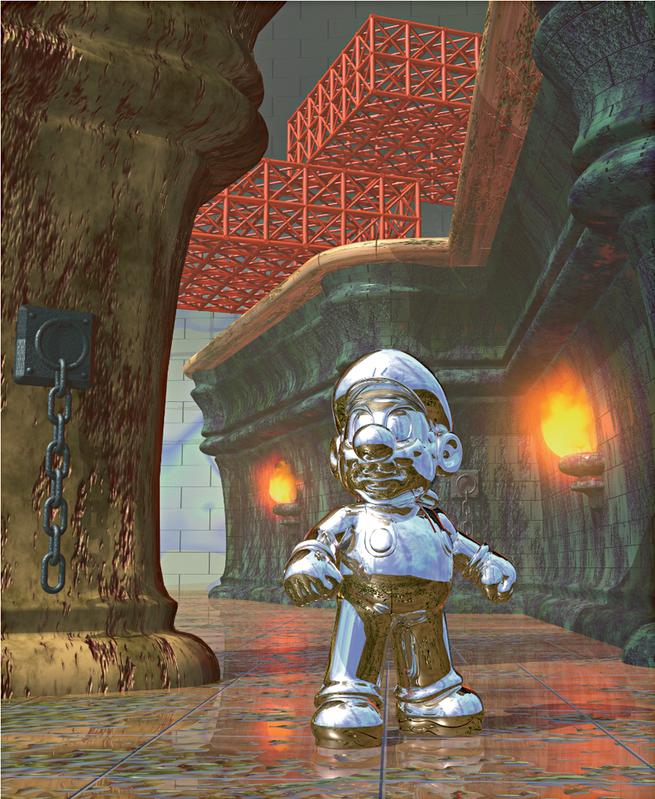Chris Padilla/Blog / Clippings
Links and snippets from across the web.
- The Music of Raymond Scott, composer of the tune Powerhouse, of Warner Bros. cartoons fame.
- Pink Champagne: A Collection of Vintage Light Music, perhaps our closest replacement for the Ren & Stimpy Production Music collection.
- Music To Knit By, humorously reminding me that the themed music streaming playlists are part of a long tradition of pragmatically curated music. Another era's Lofi Hop Hop Beats To Relax/Study To!
- Music by Candlelight at Teogra, classical guitarist & violinist provide easy listening to diners of the titular restaurant, recorded for your listening pleasure.
Open Source 1998
The change in spirit of the web and even open source itself is well encapsulated in a comparison between the 1998 version and the 2026 version of opensource.org. One dressed up and attending galas, and one handing out zines.
Perhaps one of the primary reasons for its success over the free software movement is in the marketing. From the Case for Open Source: Hacker's Version:
Mainstream corporate CEOs and CTOs will never buy 'free software', manifestos and clenched fists and all. But if we take the very same tradition, the same people, and the same free-software licenses and change the label to 'open source' - that, they'll buy.
One of the chief objections to using open source and free software during this time was around reliability. The case is made by Eric S. Raymond on the '98 page with a very period-appropriate angle:
Of all these benefits, the most fundamental is increased reliability. And if that's too abstract for you, you should think about how closed sources make the Year 2000 problem worse and why they might very well kill your business.
The several other case pages are fun to flip through since, of course, as it turns out, Eric was right.
How to Draw the Tick
While I understand the actual frustration that this and similar jokes jab at (there are plenty of examples of poor instruction out there), there does come a point where a teacher, book, tutorial, has to let go of the student's hand. You just have to... draw the Tick.
AI Agent Elevator Music

Matt Webb shares via Interconnected Mike Davidson's Claude Muzak:
I suggested last week that Claude Code needs elevator music…
Like, in the 3 minutes while you’re waiting for your coding agent to write your code, and meanwhile you’re gazing out the window and contemplating the mysteries of life, or your gas bill, maybe some gentle muzak could pass the time?
Delightful.
A few tracks are already provided, you'll have to bring your own audio files for more varied listening. Music For Local Forecast. Or perhaps anything Vaporwave! And all sorts of library music comes to mind.
For more whimsy, 1950's era incidental music would also be a terrific fit. Eons ago in internet years, there was a great collection of public domain light music tracks that were used for Ren & Stimpy, but download links are no longer handy.
A few finds from the internet archive that should fit the bill:
As a technical aside, this is a very slick use of Claude Code hooks. Common productive examples could be cleanup scripts, including a rules.md with your prompt, applying code formatting, etc. Nice to see such a fun use!
// .claude/settings.json
{
"UserPromptSubmit": [
{
"hooks": [
{
"type": "command",
"command": "python3.11 /Claude-Muzak/claude_muzak.py hook start"
}
]
}
],
"Stop": [
{
"hooks": [
{
"type": "command",
"command": "python3.11 /Claude-Muzak/claude_muzak.py hook stop"
}
]
}
]
}Art & Science from Art & Fear

A section from the book Art & Fear by David Bayles & Ted Orland. Highlighting how both practices are in search of universal Truths:
It is an article of faith, among artists and scientists alike, that at some deep level their disciplines share a common ground. What science bears witness to experimentally, art has always known intuitively — that there is an innate rightness to the recurring forms of nature. Science does not set out to prove the existence of parabolas or sine curves or pi, yet wherever phenomena are observed, there they are. Art does not weigh mathematically the outcome of the brushstroke, yet whenever artworks are made, archetypal forms appear.
A significant departure from the two, however, is the lived experience vs the theoretical:
"The main thing to keep in mind", as Douglas Hofstadter noted, "is that science is about classes of events, not particular instances." Art is just the opposite. Art deals in any one particular rock, with its welcome vagaries, its peculiarities of shape, its unevenness, its noise. The truths of life as we experience them — and as art expresses them — include random and distracting influences as essential parts of their nature. Theoretical rocks are the province of science; particular rocks are the province of art."
Is there significance to those unique peculiarities? The authors make the case for it:
The world we see today is the legacy of people noticing the world and commenting on it in forms that have been preserved. Of course it's difficult to imagine that horses had no shape before someone painted their shape on the cave walls, but it is not difficult to see the world became a subtly larger, richer, more complex and meaningful place as a result.
Going Out
I had a pretty rough day a while ago — poor night's sleep, reached dead ends on projects, and the pup took more wrangling than usual. There was this event I was considering attending earlier in the week, scheduled for that night. But alas, the day knocked me on my behind and I didn't feel up to it.
I thought I'd start a well-warranted evening at home alone by watching Seinfeld from S1E1. Until the monologue encouraged otherwise:
Do you know what this is all about? Do you know why we're here? To be out. This is out. And out is one of the single most enjoyable experiences of life... Wherever you are in life, it's my feeling you gotta go.
Needless to say, I went out. A rejuvenating time was had. Even better is that feeling of coming home, because —
Once you're out, you wanna get back.
Shel Silverstein — Author Bio
Taking extra delight and inspiration from the back cover of Where the Sidewalk Ends:
Shel Silverstein is the author of The Giving Tree, and many other books of prose and poetry. He also writes songs, draws cartoons, sings, plays the guitar, and has a good time.
Roger Angell on Naïveté & Sports
Shamelessly resharing this quote from sports writer Roger Angell sourced via Austin Kleon:
“It is foolish and childish, on the face of it, to affiliate ourselves with anything so insignificant and patently contrived and commercially exploitative as a professional sports team, and the amused superiority and icy scorn that the non-fan directs at the sports nut (I know this look - I know it by heart) is understandable and almost unanswerable. Almost. What is left out of this calculation, it seems to me, is the business of caring - caring deeply and passionately, really caring - which is a capacity or an emotion that has almost gone out of our lives. And so it seems possible that we have come to a time when it no longer matters so much what the caring is about, how frail or foolish is the object of that concern, as long as the feeling itself can be saved. Naïveté - the infantile and ignoble joy that sends a grown man or woman to dancing in the middle of the night over the haphazardous flight of a distant ball - seems a small price to pay for such a gift.”
Andrew On Why You Should Write
A few times I've made the case for blogging. Admittedly, though, maybe it's not your thing. I say this all lovingly, but blogging can have some baggage — the word itself is clunky, the format for delivery is old-fashioned (not in The Endearing way to some), and maybe you don't like the technical side of publishing.
Fine, fair enough!
What I'd also like to encourage you to do is write.
Andrew of Writing with Andrew seems to agree and has a great video on the matter.
Once students get over the hump of their initial bewilderment, they find that nonfiction pays off in all kinds of other ways. It gives them a chance to process their own experiences, to find meaning where they thought there wasn't any, to reckon with family histories, to articulate parts of themselves that have gone previously unexpressed, or even just to play with ideas and learn how to think through things in meaningful ways.
Put simply, writing is an opportunity to live more deeply. A chance to revel in the experience of it all.
There are plenty of other mediums to do this aside from blogging. But I bet you'll find some benefit in writing, no matter where you do it.
A common hurdle when it comes to publishing is how intimate it feels. I've certainly felt this. Turns out the feeling doesn't go away, because I keep finding things that feel more personal to share, more exposing.
But Andrew has another perspective on this:
There is always, and unavoidably, a separation between the flesh and blood human who is you and the constructed persona who represents you on the page. The essayist is not imagining characters in the same way that a fiction writer is. Instead, the essayist is making a character of themself.
If you've ever met someone whose writing you're familiar with, you'll catch it. Writing is a bit of a stage, and speaking with the person is not synonymous with reading their writing. Even someone who writes from a place of intimacy or in a casual tone is accessing a caricature.
So don't sweat the feeling of being too exposed — that's partly the whole point, and doubles as a shield.
I still think blogging is a fun way to do it. (Links, man!!) But maybe you prefer Twitter threads, video essays, or good ol' fashioned journaling. Whatever you do, don't miss the opportunity to magnify the experience of life!
Zac Gorman on Process
From cartoonist Zac Gorman:
In regards to process, I prefer to focus on figuring out what works best for me as opposed to what is or isn’t standard practice for contemporary comic artists. It has always been important to me to find a process that I’m comfortable with, that allows me to produce work quickly and that is the most fun possible, in order to stay engaged and productive.
I think a lot of what we understand as an artist’s “style” or “voice” is based around the development and maturation of their working process as this tends to produce a lot of variables, so what works for me may not work for you, but I think that fun, speed and comfort are the three factors I look for most in any process. Quality actually becomes a shockingly arbitrary value if you don’t first develop a process which helps you to finish work, enjoy the process of making work, and desire to make new work.
Play around with what works for you.
Another vote for Process > Product.
What's so appealing about an artist's visual style is how it communicates so much of their process. There's a great deal of humanity naturally baked in.
You would think this only applies to loose styles like Zac's, with their wobbly lines or flowing gestures. But even really polished, highly rendered pieces can expose how much an artist revels in the details.
Either way, fun has to be a major element.
(Even in software — I was speaking with a colleague about how the experience of working with a language can change the joy in the process and, of course, the end product.)
Sloan on Platforms
Robin Sloan on platforms and the web:
And I suppose I think a standard for art is that it doesn’t just play a game, but invents one. On an internet crowded with creators eager to obey each platform’s demands, follow their Best Practices (which harden into mandatory genres: quick-setting concrete), there is, I believe, an incandescence to stubborn specificity.
... There’s one platform for which none of this is true, and that’s the web platform, because it offers the grain of a medium — book, movie, album — rather than the seduction of a casino.
Astute and eloquent as always.
Blogs and websites certainly have their own ecology and cookie-cutter shapes you can fit neatly into. And yet, at the same time, they don't. It's that fine control, the distance from metrics and algorithm juicing, the conductor with their back turned to the audience — all of this makes the act of web craft much more fulfilling in the end.
Andrew Bird on Lester Young
Andrew Bird wins the award for coolest person who has a Substack Newsletter.
Here he is writing in accompaniment to The Andrew Bird Jazz Trio – Live at the Green Mill:
For the last 20 years, I’ve tried to play my violin like a tenor sax. Instead of choppy articulation, I go for a fluid phrase that a lung full of air could create. The pressure of the bow on the string is like forcing air through the reed, pushing that threshold between a full tone and noise. Lester Young is my guy, as are Coleman Hawkins, Ben Webster, and Don Byas. I favored the 5-string violin while recording Sunday Morning Put-On, as it got me closer to that tenor sax sound. The low C string has the richness of a tenor, and you have to move more air to get it going, sometimes producing that skronk that is too strident on the higher strings.
Funnily enough, when I play sax, I often times have the sound of a violin in my head. Joshua Bell played on repeat for me as I studied phrasing and buoyancy.
This isn't uncommon. No matter the instrument, I've talked to musicians who have moments of trying to imitate another in their tone and timbre for certain moods. Euphoniums imitating a cellist, clarinetists imitating flutes, a sax section imitating electric guitar, etc.
It seems like Andrew Bird and I were both aiming for the same fluidity and warmth of sound, just with different reference points. Maybe there's a mystical instrument in the middle of the two, yet to be invented, that has the best of both.
Melon & The Web Revival
Daniel Murray (aka Melon) has an inspiring post explaining in broad terms what the Web Revival is. Readers familiar with Digital Gardens and Indie Web will find resonance here, as well as shoutouts partway in!
The Web Revival is one name for a wider internet-based movement! The name itself is derived from the Folk Revival of the mid-20th century. The Folk Revival promoted a feeling of humanity, creativity and equality at a time of rapid mechanisation; whereas the Web Revival promotes these values in the face of the rapid digitisation that surrounds us today.:
I'm appreciative of the connection to Folk Revival! Folk music is a metaphor I've previously made to creating online. It seems to fit because it implies a couple of things: closely tied to culture, and organically being maintained by a community.
The answer to "What's in it for me? Why make a site?" is sublime:
That's a fair question, why should you invest your time and energy in the Web Revival? Maybe you relate to some of the ideals listed above, or maybe you're not sure; ideals are nice, but life is not about ideals. I challenge you; don’t think about the Web Revival as a resource for you to exploit; instead, it's an offer; to play, to explore the unknown, to do something just for fun; not for money, status, or because it's trendy.
Maybe you’ll get nothing out of it, but I think you will! Like many others, I think you’ll find peace, freedom and relief from stress in creating your own digital world and owning your own space. Play is not about passing time, it's about inventing and becoming who you are and who you wish to become. You deserve to experience a web where you are free to be who you wanna be and do what you wanna do; one where you decide how to spend your time, not an algorithm that exploits you for profit. The Web Revival can't fix everything wrong in the world, but we can make it better, one little homepage at a time.
Beautiful.
A great case for practicing any art, from drawing to knitting to site making. What's wonderful about web revival is integration. We live in a phenomenal time where creativity can be supercharged by the tech at our disposal. It's as much a shame to only fit that creative energy into the neat rectangular box of a commercial app as it would be to step away from creating online at all, throwing the baby out with the bath water. The spirit of the Web Revival and all similarly spirited movements is to take the best of what we have available to us and create something authentic from it.
Burkeman on Hobbies
Oliver Burkeman in Four Thousand Weeks gave me a pick-me-up in my evening creative shenanigans the other day:
In an age of instrumentalization, the hobbyist is a subversive; he insists that some things are worth doing for themselves alone, despite offering no payoffs in terms of productivity or profit... It's fine, and perhaps preferable, to be mediocre at them... to pursue an activity in which you have no hope of becoming exceptional is to put aside, for a while, the anxious need to "use time well."
Play the countermelody. Do something for the whimsy of it!
Metal Mario & Textures
I have an annual ritual of playing through Super Mario 64. I'm super familiar with the game proper.
A delightful new discovery has been the original CGI renders developed to promote the game. This one takes the cake for me.
Another fun crate that I've been digging in is Render96's texture libraries. (The Bakku no Oni collection is particularly fun.)
They specifically archive texture collections that were used for games like Mario 64. Now knowing how the sausage is made, looking through these really gets the imagination going. In both directions: Trying to see if I recognize a pattern, or imagining what type of model a texture could be applied to.
Make What Only You Can
Thinking of Neil Gaiman's commencement speech this morning:
And Fifthly, while you are at it, make your art. Do the stuff that only you can do.
The urge, starting out, is to copy. And that’s not a bad thing. Most of us only find our own voices after we’ve sounded like a lot of other people. But the one thing that you have that nobody else has is you. Your voice, your mind, your story, your vision. So write and draw and build and play and dance and live as only you can.
The moment that you feel that, just possibly, you’re walking down the street naked, exposing too much of your heart and your mind and what exists on the inside, showing too much of yourself. That’s the moment you may be starting to get it right.
The things I’ve done that worked the best were the things I was the least certain about, the stories where I was sure they would either work, or more likely be the kinds of embarrassing failures people would gather together and talk about until the end of time. They always had that in common: looking back at them, people explain why they were inevitable successes. While I was doing them, I had no idea.
That's extra reassuring if you are someone whose interests span multiple disciplines, crafts, and mediums. Heck, if you blog from a code editor, I'd say you're one of those people! Making that which only you can.
After having spent many years squarely fitting into a genre, I have to say that the work is all the more meaningful when it's such a unique combination of skills. When, truly, it's something only you can make. There's a mission there. There are ideas looking to come into the world where only a select number of skills can get them there.
Make genre pieces. Make math rock, haikus, and landscape paintings, sure. But, also, make math rock music videos where the lyrics follow haiku structures with a landscape painting as the album art.

